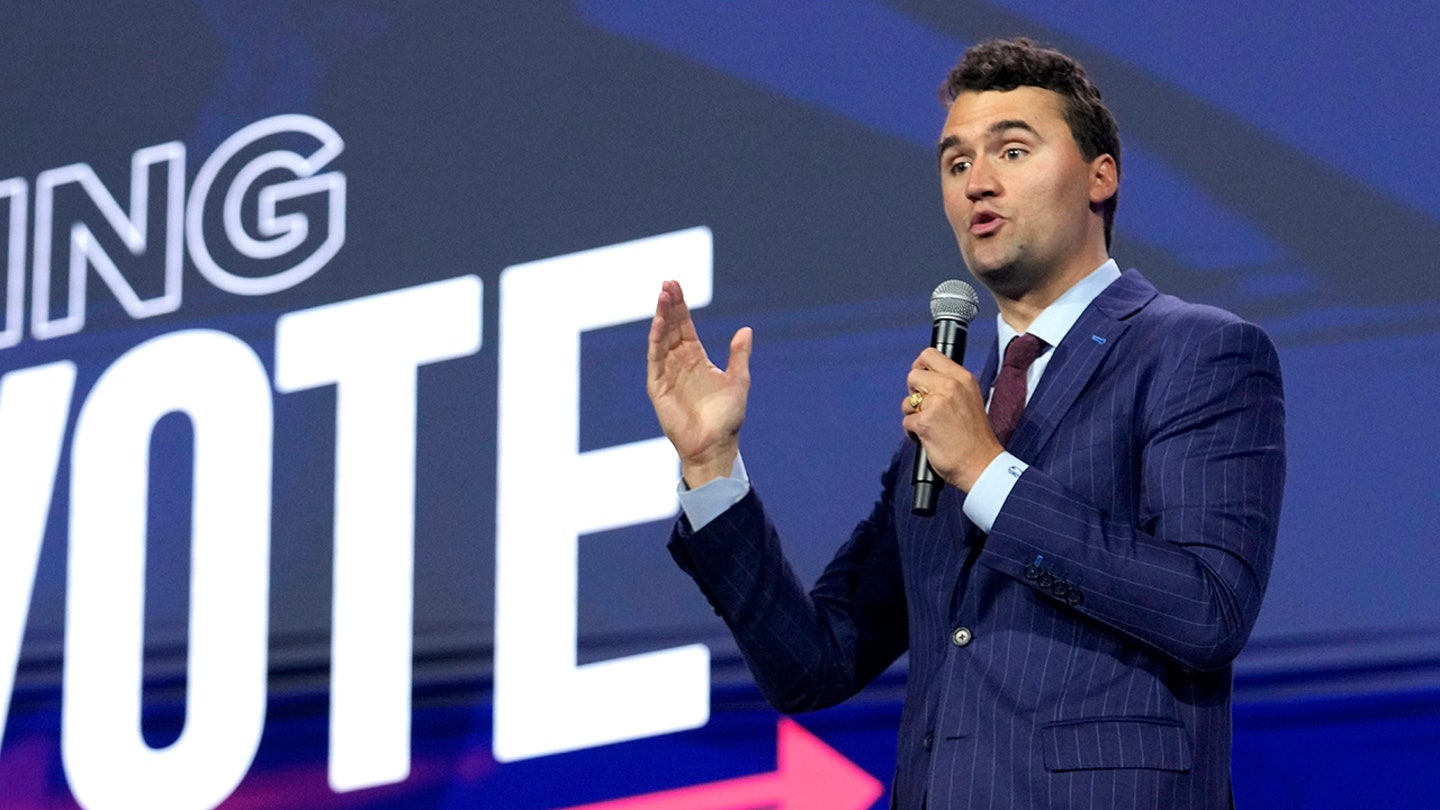
Police investigating USA Cycling incident after footage of organizers' interaction with activist goes viral
Entities mentioned:
- Livermore Police Department: Duty, Justice, Security
- USA Cycling: Professional pride, Control, Self-preservation
- Beth Bourne: Righteousness, Moral outrage, Justice
- Chelsea Wolfe: Revenge, Moral outrage, Recognition
Article Assessment:
Credibility Score: 65/100
Bias Rating: 55/100 (Center)
Sentiment Score: 25/100
Authoritarianism Risk: 35/100 (Generally Democratic)
Bias Analysis:
The article presents multiple viewpoints, including quotes from various parties involved. However, it gives slightly more space to Bourne's perspective, potentially leaning towards her side of the argument.
Key metric: Gender Equality in Sports
Let me tell you something, folks - this is a FULL CONTACT match between competing ideologies in the arena of women's sports! We've got activist Beth Bourne stepping up to the plate, challenging USA Cycling's game plan on gender verification. But USA Cycling's organizers are playing HARD DEFENSE, folks! They're not just blocking shots, they're snatching cameras and trashing protest signs like they're swatting away three-pointers! Meanwhile, Chelsea Wolfe is coming off the bench with some HEATED trash talk that's raising eyebrows across the league. This is a high-stakes game with no clear winner yet, and the refs - I mean the Livermore PD - are reviewing the tape to see if any fouls were committed. This clash is going into OVERTIME and it's anyone's game!

Ex-ESPN host Sam Ponder says 'DMs more disturbing than ever' after Charlie Kirk post
Entities mentioned:
- Samantha Ponder: Righteousness, Moral outrage, Duty
- Charlie Kirk: Influence, Legacy, Determination
- Tyler Robinson: Revenge, Moral outrage, Control
- ESPN: Professional pride, Influence, Control
Article Assessment:
Credibility Score: 70/100
Bias Rating: 55/100 (Center)
Sentiment Score: 30/100
Authoritarianism Risk: 35/100 (Generally Democratic)
Bias Analysis:
The article presents multiple viewpoints and quotes directly from the source. However, it leans slightly right by focusing on a conservative figure and framing criticism against him negatively.
Key metric: Political Polarization Index
Let me tell you something - this story is a GAME-CHANGER, folks! We're seeing a major player, Samantha Ponder, step up to the plate in a high-stakes political arena. She's showing true championship mentality by speaking out despite the heat she's taking. This is fourth quarter, crunch time stuff! Ponder's not just playing defense against the blitz of DMs, she's going on the offensive with a bold strategy. Meanwhile, the tragic loss of Charlie Kirk has turned this into sudden death overtime. The political playing field is more divided than ever, with teams refusing to show sportsmanship even in the face of a fallen competitor. This is RIDICULOUS! We're seeing a breakdown of the fundamentals of civil discourse, and it's turning into an all-out brawl in the court of public opinion. Ponder's rallying cry for courage could be the momentum shift this matchup needs. I'm telling you right now, this is a pivotal moment that could determine the whole season in America's ongoing culture war championship series!

Rashee Rice crash victim's lawyer slams Travis Kelce for wearing T-shirt in teammate's honor
Entities mentioned:
- Travis Kelce: Loyalty, Unity, Professional pride
- Rashee Rice: Self-preservation, Anxiety, Obligation
- March Lenahan: Justice, Moral outrage, Indignation
- Kansas City Chiefs: Competitive spirit, Unity, Professional pride
Article Assessment:
Credibility Score: 75/100
Bias Rating: 55/100 (Center)
Sentiment Score: 30/100
Authoritarianism Risk: 25/100 (Generally Democratic)
Bias Analysis:
The article presents multiple perspectives, including those of the players, the victim's lawyer, and factual details about the case. While it gives space to criticism of Rice and Kelce's actions, it also includes Rice's statement of remorse.
Key metric: NFL Team Performance
Let me tell you something - this story is a GAME-CHANGER! The Kansas City Chiefs are in a fourth-quarter crisis, folks! With star receiver Rashee Rice benched due to off-field fumbles, the team's offensive playbook is getting sacked! Travis Kelce's attempt to rally team spirit with that 'Free 4' shirt is like a Hail Mary pass, but it's backfiring faster than a botched snap! The victim's lawyer is blitzing hard, calling out this move as if Kelce just committed a personal foul on the field of public opinion. I'm telling you right now, this is the kind of locker room drama that can derail a championship season! The Chiefs are 0-2, and with their star receiver on the sidelines, they're struggling to move the chains. This is RIDICULOUS! Patrick Mahomes is putting up rookie numbers, and the team's unity is being tested like never before. It's crunch time for the Chiefs, and they need to pull out all the stops to turn this season around before it's game over!

NFL great's NJ hometown refused to lower flags in honor of Charlie Kirk, its neighbors rose to the occasion
Entities mentioned:
- Nick Mangold: Moral outrage, Righteousness, Patriotism
- Madison, NJ: Duty, Wariness, Self-preservation
- Florham Park: Patriotism, Duty, Loyalty
- East Hanover: Duty, Loyalty, Patriotism
- Summit: Duty, Loyalty, Patriotism
- Donald Trump: Power, Control, Legacy
- Charlie Kirk: Influence, Legacy, Freedom
- Greg Abbott: Unity, Loyalty, Patriotism
Article Assessment:
Credibility Score: 75/100
Bias Rating: 65/100 (Lean Right)
Sentiment Score: 35/100
Authoritarianism Risk: 45/100 (Mixed/Neutral)
Bias Analysis:
The article leans right by focusing heavily on conservative figures and their supporters. It presents criticism of those not lowering flags while giving more space to those who complied with Trump's proclamation.
Key metric: National Unity
Let me tell you something - this flag-lowering situation is turning into a FULL-COURT PRESS of political drama! We've got former NFL star Nick Mangold coming off the bench to call out his hometown for not following the President's playbook. It's like we're watching a high-stakes game of patriotic hot potato, with some towns stepping up to the plate and others fumbling the ball. This is RIDICULOUS, folks! We've got a divided locker room situation here, with neighboring towns playing by different rulebooks. It's fourth quarter, and the clock is ticking on national unity. Some players are showing real team spirit, while others are sitting on the sidelines. I'm telling you right now, this is the kind of play that can make or break a nation's championship mentality!

Joe Burrow’s foundation severs ties with Ohio judge over comments celebrating Charlie Kirk's killing
Entities mentioned:
- Joe Burrow Foundation: Righteousness, Professional pride, Unity
- Ted Berry: Moral outrage, Indignation, Self-preservation
- Adam Mathews: Justice, Righteousness, Duty
- Alex Linser: Professional pride, Unity, Justice
Article Assessment:
Credibility Score: 75/100
Bias Rating: 55/100 (Center)
Sentiment Score: 30/100
Authoritarianism Risk: 25/100 (Generally Democratic)
Bias Analysis:
The article presents multiple perspectives, including statements from both political parties. While it leans slightly right by featuring more quotes from the Republican lawmaker, it maintains a relatively balanced approach.
Key metric: Social Cohesion Index
Let me tell you something, folks - this is a GAME-CHANGING play in the world of public discourse! The Joe Burrow Foundation has just executed a perfect defensive maneuver, cutting ties with Judge Ted Berry faster than a quarterback dodging a blitz. It's fourth quarter action and they're not taking any chances with their reputation on the line. Meanwhile, State Rep. Adam Mathews is playing offense, calling for Berry's resignation with the determination of a linebacker going for a sack. This is the kind of high-stakes action that separates the champions from the bench-warmers in the arena of public service. The political playing field is HEATING UP and every player needs to bring their A-game or risk being benched permanently!

NJ town points to state's flag status after Jets legend's criticism following Charlie Kirk assassintion
Entities mentioned:
- Madison, New Jersey: Duty, Self-preservation, Professional pride
- Nick Mangold: Moral outrage, Righteousness, Patriotism
- Charlie Kirk: Free speech, Legacy, Influence
- Donald Trump: Power, Control, Loyalty
- New Jersey State Government: Control, Duty, Professional pride
Article Assessment:
Credibility Score: 70/100
Bias Rating: 55/100 (Center)
Sentiment Score: 30/100
Authoritarianism Risk: 35/100 (Generally Democratic)
Bias Analysis:
The article presents multiple viewpoints, including the town's defense and Mangold's criticism. However, it leans slightly right by emphasizing the controversy and patriotic angle.
Key metric: Political Unity Index
Let me tell you something, folks - this flag controversy is turning into a real political slugfest! Madison, New Jersey is playing defense against an all-out blitz from former Jets star Nick Mangold. It's like they're in the red zone of public opinion, trying to avoid a major turnover! The town officials are sticking to their playbook, following the state's game plan on flag protocol. But Mangold, with his Pro Bowl pedigree, is bringing the heat like it's fourth and long! This is the kind of high-stakes match-up that tests the team spirit of a nation. Are we seeing a breakdown in the huddle of American unity? Or will this be a rallying point for a comeback in our national cohesion? I'm telling you right now, how this plays out could be a game-changer for the Political Unity Index. It's time for leadership to step up to the plate and show some championship-level decision making!

LIV Golf star Phil Mickelson slams 'disgusting rhetoric' after Charlie Kirk assassination
Entities mentioned:
- Phil Mickelson: Moral outrage, Justice, Unity
- Charlie Kirk: Influence, Competitive spirit, Legacy
- Tyler Robinson: Revenge, Moral outrage, Control
Article Assessment:
Credibility Score: 65/100
Bias Rating: 70/100 (Lean Right)
Sentiment Score: 25/100
Authoritarianism Risk: 45/100 (Mixed/Neutral)
Bias Analysis:
The article leans right, focusing on a conservative figure's assassination and highlighting support from a prominent athlete. It presents critics of Kirk negatively, potentially skewing the narrative.
Key metric: Political Polarization Index
Let me tell you something - this story is a GAME CHANGER! We're seeing a major player, Phil Mickelson, stepping up to the plate in a whole new arena. He's not just swinging clubs anymore, folks - he's taking a swing at the political discourse! This assassination has turned into a full-court press of ideological warfare. Mickelson's coming out swinging, calling foul on the 'disgusting rhetoric' from the opposing team. It's like we're watching a high-stakes matchup where the rules of engagement are being rewritten on the fly. The conservative playbook has been shaken up, and now we're seeing athletes like Mickelson suit up for a different kind of contact sport. This isn't just a skirmish, it's a full-on battle for the heart and soul of America's political playing field!

Ex-Jets star 'disgusted' with New Jersey town for failing to honor Charlie Kirk
Entities mentioned:
- Nick Mangold: Righteousness, Moral outrage, Patriotism
- Charlie Kirk: Influence, Legacy, Freedom
- Madison, New Jersey: Wariness, Self-preservation, Indignation
- President Donald Trump: Power, Control, Loyalty
- Gov. Phil Murphy: Control, Self-preservation, Professional pride
- Bergen County: Self-preservation, Duty, Obligation
Article Assessment:
Credibility Score: 70/100
Bias Rating: 65/100 (Lean Right)
Sentiment Score: 25/100
Authoritarianism Risk: 45/100 (Mixed/Neutral)
Bias Analysis:
The article leans right, framing the flag issue as a clear moral imperative. It prominently features conservative voices and perspectives, while giving less space to opposing viewpoints.
Key metric: Social Cohesion
Let me tell you something - this political football game is getting HEATED! We've got a real clash of titans here, folks. On one side, we have team 'Patriotic Respect' led by MVP Nick Mangold, throwing a Hail Mary pass to honor fallen player Charlie Kirk. But WAIT! The opposing team 'Local Government' is running interference, refusing to lower their flag! This is a CRUCIAL play in the fourth quarter of our nation's unity game. I'm telling you right now, this kind of team division could cost us big in the championship of social cohesion. We're seeing some serious defensive strategies from Madison and Bergen County, trying to protect their end zone from federal pressure. But Mangold's not backing down - he's bringing his A-game, calling out the coaches and putting the pressure on. This is the kind of high-stakes political athletics that can make or break a nation's team spirit!

Oregon coach delivers powerful unity message after assassination of Ducks fan Charlie Kirk
Entities mentioned:
- Dan Lanning: Unity, Moral outrage, Righteousness
- Charlie Kirk: Legacy, Influence, Recognition
- Oregon Ducks Football Team: Unity, Competitive spirit, Determination
- United States: Unity, Security, Justice
Article Assessment:
Credibility Score: 75/100
Bias Rating: 45/100 (Center)
Sentiment Score: 35/100
Authoritarianism Risk: 25/100 (Generally Democratic)
Bias Analysis:
The article presents a balanced view of Lanning's statements, including both his calls for unity and his stance on gun control. It doesn't lean heavily towards either political side, maintaining a centrist approach.
Key metric: Social Cohesion Index
Let me tell you something - this story is a GAME-CHANGER! Coach Lanning is stepping up to the plate in a BIG way, folks. He's not just calling plays on the field, he's making a play for the heart and soul of America! This coach is showing true championship mentality, using his locker room as a blueprint for national unity. It's fourth quarter for our country's social fabric, and Lanning's got the ball. He's driving home a message of teamwork that could be the Hail Mary pass we need to bring this divided nation together. I'm telling you right now, if we can translate that locker room spirit to the big leagues of American society, we might just have a shot at winning the ultimate prize - a united, secure, and just nation. This is the kind of leadership that turns the tide when the scoreboard's looking grim!

NASCAR driver dedicates victory in Bristol to Charlie Kirk: 'This one's for Charlie'
Entities mentioned:
- Christopher Bell: Professional pride, Loyalty, Recognition
- Charlie Kirk: Influence, Legacy, Righteousness
- NASCAR: Unity, Professional pride, Competitive spirit
- Tyler Robinson: Fear, Self-preservation, Moral outrage
- Major League Baseball: Unity, Recognition, Professional pride
- National Football League: Unity, Professional pride, Wariness
Article Assessment:
Credibility Score: 75/100
Bias Rating: 65/100 (Lean Right)
Sentiment Score: 45/100
Authoritarianism Risk: 30/100 (Generally Democratic)
Bias Analysis:
The article leans right due to its focus on conservative figure Charlie Kirk and the positive framing of tributes to him. However, it maintains some balance by including factual reporting on the incident and various sports organizations' responses.
Key metric: National Unity Index
Let me tell you something - this story is RIDICULOUS! We're seeing a full-court press of unity across the sports world, folks! Christopher Bell just stepped up to the plate and knocked it out of the park with his tribute to Charlie Kirk. This isn't just a victory lap, it's a CHAMPIONSHIP MENTALITY spreading through the locker rooms of America! From NASCAR to the MLB to the NFL, we're witnessing a TEAM EFFORT like never before. The sports world is coming together like a well-oiled machine, showing that when the chips are down, they can rally around each other with the intensity of a fourth-quarter comeback! This is what it's all about, people - the competitive spirit of sports being channeled into a united front against violence. It's a game-changing move that could shift the momentum in our nation's political arena!